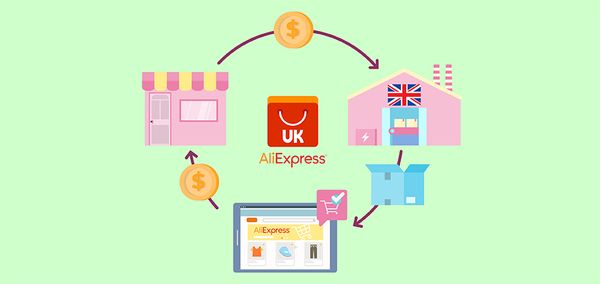How to Earn Passive Income: Top 8 Automated Online Business Ideas

In the hustle and bustle of today's digital era, the concept of passive income holds an irresistible charm. The notion of earning a steady stream of revenue while you sleep, travel, or indulge in your passions is undeniably enticing. Yet, the question remains: how does one attain this seemingly unattainable dream? The answer lies within the realm of automated online businesses. These innovative ventures leverage cutting-edge technology to streamline operations and minimize manual intervention, thus paving the way for sustainable income generation with minimal ongoing effort.
What Are Automated Online Business Ideas
Automated online business ideas encompass a spectrum of ventures engineered to capitalize on technological advancements for streamlined operations and passive income generation. These innovative enterprises leverage automation tools, algorithms, and digital platforms to minimize manual intervention, allowing entrepreneurs to focus on strategic growth rather than day-to-day operations. From dropshipping and affiliate marketing to software as a service (SaaS) and digital product sales, the possibilities are limitless. These businesses are designed to operate efficiently with minimal ongoing effort once established, offering a pathway to financial freedom and flexibility in today's digital landscape.
What Automated Online Business You Can Try
Are you ready to embark on a journey towards passive income generation through automated online businesses? Let's dive deeper into some of the most promising ventures in this domain:
1. Dropshipping
The projected value of the global dropshipping market is an impressive $102.6 billion by 2025. Dropshipping has revolutionized the e-commerce landscape, offering entrepreneurs a low-risk opportunity to start their online retail businesses without the hassle of managing inventory or fulfillment logistics. In this business model, retailers partner with suppliers who handle inventory storage, packaging, and shipping. The retailer's role is to market the products, attract customers, and forward orders to the supplier. With minimal upfront investment and overhead costs, dropshipping allows entrepreneurs to focus on marketing and customer acquisition, earning a profit margin on each sale without ever touching the merchandise.

|
Place Orders to AliExpress In Seconds DSers Bulk Order - Place 100s of orders to AliExpress in a few seconds with a just few clicks |
To start a dropshipping business, entrepreneurs need to select a niche market, research potential suppliers, and set up an online store using e-commerce platforms like Shopify or WooCommerce. They then source products from suppliers and list them for sale on their website, setting their prices and profit margins. Once a customer places an order, the dropshipper forwards the order information to the supplier, who will ship the product directly to the customer. While dropshipping offers flexibility and scalability, success in this competitive market requires effective marketing strategies, customer service, and product selection.
2. Affiliate Marketing
More than 81.2% of affiliate marketers earn over $20,000 per year. Affiliate marketing is a results-driven marketing approach that enables individuals to earn commissions by promoting products or services created by others. In this particular business model, affiliates (referred to as publishers) promote products through diverse channels like websites, blogs, social media platforms, or email newsletters. When a customer clicks on the affiliate link and subsequently makes a purchase or fulfills a specific action, such as subscribing to a newsletter or submitting a form, the affiliate receives a commission in return.

To succeed in affiliate marketing, entrepreneurs need to choose a niche market and select affiliate programs that align with their interests and target audience. They then create valuable content that educates, entertains, or solves problems for their audience while subtly incorporating affiliate links. Effective affiliate marketers build trust and credibility with their audience by providing honest recommendations and transparent disclosures about their affiliate relationships. With the right strategy and consistent effort, affiliate marketing can become a lucrative source of passive income, allowing entrepreneurs to earn commissions while they sleep or focus on other projects.
3. Software as a Service (SaaS)
Software as a Service (SaaS) businesses offer cloud-based software solutions to customers on a subscription basis, providing valuable tools and services without the need for installation or maintenance. SaaS products range from project management platforms and customer relationship management (CRM) software to email marketing automation tools and graphic design software. By leveraging technology and automation, SaaS entrepreneurs can create scalable businesses with recurring revenue streams and minimal overhead costs.

To start a SaaS business, entrepreneurs need to identify a market need or pain point and develop a software solution that addresses it. They then build and launch their product, using agile development methodologies to iterate and improve based on customer feedback. SaaS entrepreneurs also need to focus on customer acquisition and retention, implementing marketing strategies such as content marketing, search engine optimization (SEO), and paid advertising to attract and retain customers. While building a SaaS business requires significant upfront investment in product development and marketing, successful SaaS entrepreneurs can enjoy high profit margins and long-term growth potential.
4. Digital Products Selling
Creating and selling digital products has emerged as a lucrative opportunity for entrepreneurs to monetize their expertise, creativity, and knowledge. Digital products include e-books, online courses, digital downloads, templates, and software tools, among others. Unlike physical products, digital products can be created once and sold repeatedly without the need for inventory, storage, or shipping, making them an ideal choice for passive income generation.
To start selling digital products, entrepreneurs need to identify a niche market and research potential product ideas based on market demand and competition. They then create high-quality digital products that provide value and solve specific problems for their target audience.
Digital products can be sold through online marketplaces, e-commerce platforms, or self-hosted websites, using payment processors and digital delivery systems to automate the sales and delivery process. Successful digital product creators focus on building their brand, establishing credibility, and nurturing relationships with their customers through email marketing, content marketing, and social media engagement.
5. Chatbot Services
As businesses strive to enhance customer experience and streamline operations, the demand for chatbot services continues to rise. Approximately 1.4 billion individuals utilize messaging applications and are open to engaging with chatbots. Chatbots are AI-powered virtual assistants that interact with users in natural language, providing instant support, information, and assistance. Chatbots can be deployed on websites, messaging apps, social media platforms, and voice-activated devices, automating customer support, lead generation, sales, and marketing tasks.
To start a chatbot service business, entrepreneurs need to develop expertise in chatbot development, natural language processing, and conversational design. They then offer chatbot development, customization, and management services to businesses across industries, helping them automate repetitive tasks, improve efficiency, and enhance customer engagement. Successful chatbot service providers focus on delivering value to their clients by understanding their needs, designing personalized chatbot solutions, and providing ongoing support and optimization.
6. Membership Websites
Membership websites offer exclusive content, community access, or premium services to members in exchange for a recurring fee. Membership sites can cater to a wide range of niches and interests, including online courses, digital libraries, coaching programs, professional networks, and subscription-based communities. By providing valuable content, resources, and support to members, entrepreneurs can create a steady stream of passive income while fostering a sense of belonging and engagement.
To start a membership website, entrepreneurs need to identify a niche market and research potential membership models and pricing strategies. They then create high-quality content, resources, and benefits that provide value and meet the needs of their target audience. Membership websites can be built using membership plugins and platforms such as WordPress, MemberPress, Teachable, or Kajabi, which offer features for content protection, payment processing, member management, and community building. Successful membership site owners focus on delivering ongoing value to their members, nurturing relationships, and fostering a sense of community and belonging.

|
Manage Multiple Stores In One Account Multiple Stores Management - Link and manage multiple stores on different platforms in one place |
7. YouTube Channel Operating
Monetizing a YouTube channel has become increasingly accessible, thanks to the platform's robust advertising program, sponsorships, and merchandise opportunities. YouTube creators can earn money through several monetization methods, including ad revenue, channel memberships, Super Chat donations, merchandise shelves, and brand partnerships. With the right niche, content strategy, and audience engagement, entrepreneurs can turn their passion for video creation into a profitable online business.
To start a YouTube channel, entrepreneurs need to identify a niche market and create high-quality, engaging video content that resonates with their target audience. They can optimize their videos for search engines and promote them through social media, email newsletters, and collaboration with other YouTubers. As their channel grows, creators can apply for the YouTube Partner Program and enable monetization features such as ads, memberships, and merchandise. Successful YouTube creators focus on building a loyal audience, diversifying their revenue streams, and consistently delivering value through their content.
8. Automated Content Creation
Advancements in artificial intelligence have revolutionized content creation, enabling entrepreneurs to automate the process of generating written, visual, and audio content. AI-powered tools such as natural language generation platforms, image and video editing software, and voice synthesis technology empower creators to produce high-quality content at scale with minimal time and effort. By automating content creation, entrepreneurs can save time, reduce costs, and focus on strategic activities such as content promotion, audience engagement, and monetization.
To leverage automated content creation tools, entrepreneurs need to identify content opportunities and goals, select the appropriate AI tools and platforms, and develop a content strategy that aligns with their brand and audience. They can use AI to generate blog posts, articles, social media posts, product descriptions, video scripts, podcast episodes, and more while customizing the content to match their style and voice. Successful content creators focus on quality, relevance, and authenticity, using AI as a tool to enhance their creativity, productivity, and efficiency.
EndNote
The landscape of automated online businesses presents an array of tantalizing opportunities for aspiring entrepreneurs seeking to venture into the realm of passive income generation. If you want to succeed, whether you're a seasoned entrepreneur or a novice dipping your toes into the world of online business, the key lies in taking action, staying adaptable, and continually refining your approach to thrive in the dynamic digital landscape.
Want to find more informative blogs? Visit DSers blog today!












 Company
Company
 Why Choose DSers
Why Choose DSers
 Blog
Blog
 Help Center
Help Center




 Live Chat
Live Chat